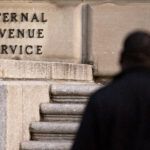
When thinking of opportunity zones — economically distressed communities where new investments may be eligible for preferential tax treatment under the 2017 Tax Cuts and Jobs Act — one tends to think of real estate investments in remote communities in poor states like Alabama and New Mexico, or long neglected and rundown neighborhoods in large cities like Chicago and Detroit.
But there are more than 8,700 census tracts currently designated as opportunity zones, according to the Brookings Institution, and they are spread throughout the country, from Oakland, Calif., to New York City.
Some of these areas, located near up-and-coming neighborhoods, may surprise you. Here are the top 10 opportunity zones, according to real estate investing site Fundrise.com.
The one-year change in home prices reflects changes at a citywide level between May 2017 and May 2018, according to Zillow. The five-year change reflects changes at a citywide level between May 2013 and May 2018, according to Zillow.
Map images are courtesy of Economic Innovation Group, as seen on Fundrise.com.
(More: Trump’s rules for opportunity zones satisfy investors’ wish lists)








